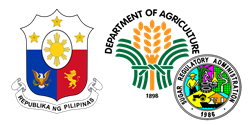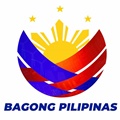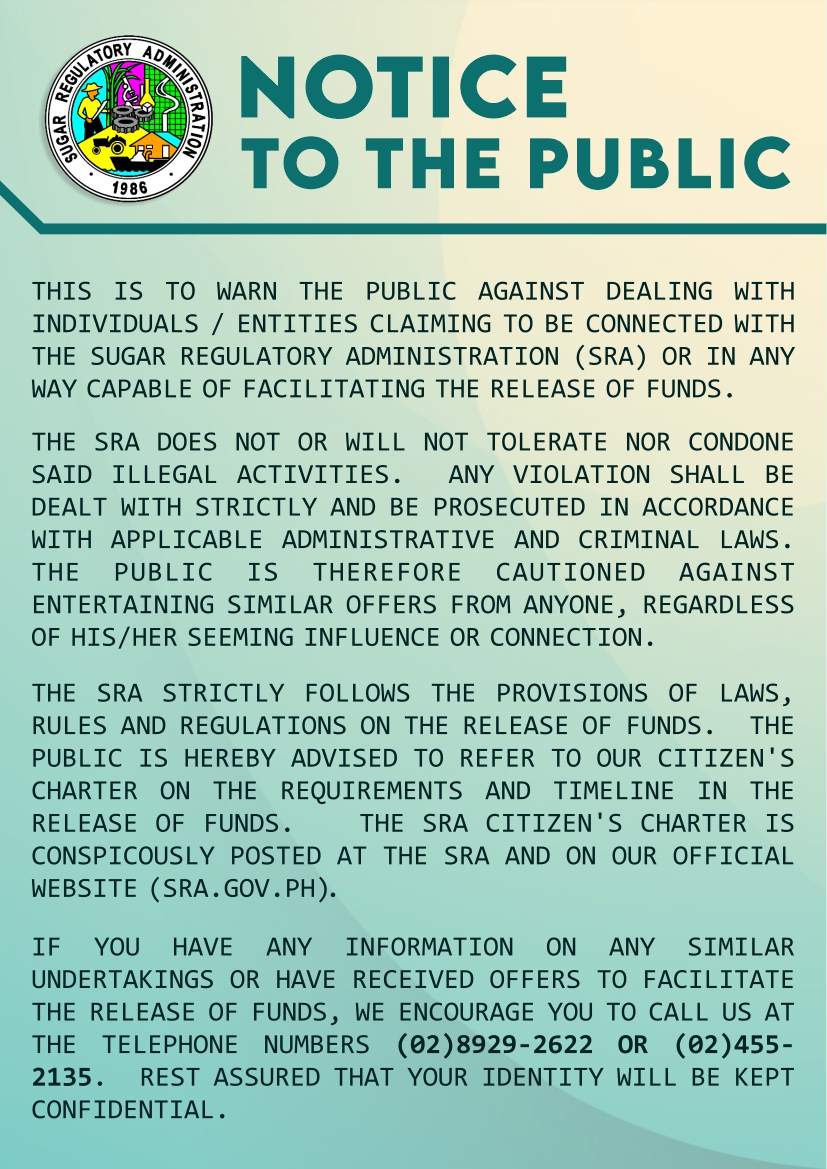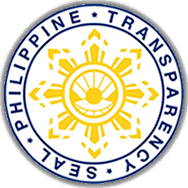Deep planting technologies pushed for better sugar yield
FLORIDABLANCA, PAMPANGA – Sugar farmers are encouraged to implement deep planting technology after research findings show that this practice preserve moisture and ratoon quality for better sugar cane yield especially during drier season.
The research conducted by the Sugar Regulatory Administration Luzon Agricultural Research and Extension Center (SRA-LAREC) in cooperation with the Japan International Research Center for Agricultural Sciences (JIRCAS) was presented to farmers and sugar technologists during the “Farmer’s Field Day on Deep Planting Technologies” last February 17, 2025.
Agriculture Sec. Francisco Tiu Laurel lauded the project saying, “We believe that technology and innovation like the deep planting technologies help propel the agricultural sector towards enhanced productivity, profitability and global competitiveness,” in a message read by Dr. Arthur Dayrit, the Regional Technical Director for Operations, DA’s Regional Field Office III.
Minister Nihei Daisuke from the Embassy of Japan on the other hand said he was “truly impressed by the dedication of the researchers. Given that Japan and the Philippines share similar agricultural challenges, I believe the findings of this research have great potential.”
SRA Administrator Pablo Luis Azcona gave high marks to the technology saying that last year, “I was tasked to farm 160 hectares of sugarcane, following what JIRCAS has recommended and so far, this could be one of our best harvests.”
“I definitely think the technology works and we thank JIRCAS for the inputs as we have a lot of catching up to do,” Azcona said. He added that since their appointment to the Sugar Board in 2022, “we vowed to modernize the industry as much as we can and this kind of technology transfer can really help the industry as we have five million people dependent on the industry and we cannot allow it to die.”
Deputy Administrator II for the Research, Development, and Extension Services, Ignacio Santillana on the other hand thanked JIRCAS and the generosity of the Japanese government that helps “improve our coping abilities to our ever changing climatic conditions.”
JIRCAS Program Director Keiichi Hayashi in his speech said, “The need for sugar is increasing and so we need to increase production. The impact of this deep planting technology will be felt especially during El Niño.”
Yoshifumi Terajime, Senior Researcher in JIRCAS said they were able to confirm the effectiveness of deep planting which is a simple process “but contributes to improving cane yield and ratooned crops; deep planting also improves logging tolerance, showing a higher germination rate.”
Depth planting is an important part of sugarcane ratooning, a method to propagate new sugarcane by leaving sugarcane roots during the harvest to create another yield. Deep planting is a simple technique of depth planting where 20-30 cm is dug to plant sugarcane.
Within the Philippines, Terajime said sugarcane farmers manually plant at a shallow depth which has several disadvantages like producing smaller root systems and lower resilience during droughts. Shallow planting is also particularly disadvantageous for mechanized farming processes.
The researchers conducted experiments comparing the yield of manual planting versus deep planting in sites within LAREC, Sta. Monica Block Farm, and Sto. Rosario Block Farm and overall, findings showed that deep planting technology has almost perfect germination, minimized growth gap for overall growth, and secured root development for longer ratoons.
Moreover, the process cut down weed management from the usual 3-4 cycles to just one.
The project was also in collaboration with Yanmar Philippines, represented by their President, Tatsuru Matsuda that recommended several deep planting machineries that can “help sugarcane farmers improve their efficiency and save on labor costs.”
Matsuda introduced the subsoiler harrow that makes deep planting into one process with a working depth of 150-350mm, a rotary harrow for breaking up compacted soil, a crumble roller attachment for creating soft soil conditions, and a torque limiter to prevent tractor PTO damage.
Officials from the Japan Embassy, the DA, SRA, JIRCAS, Yanmar, Toyota Tsubo Philippines Corporation and the Bureau of Soils and Water also attended the event.







